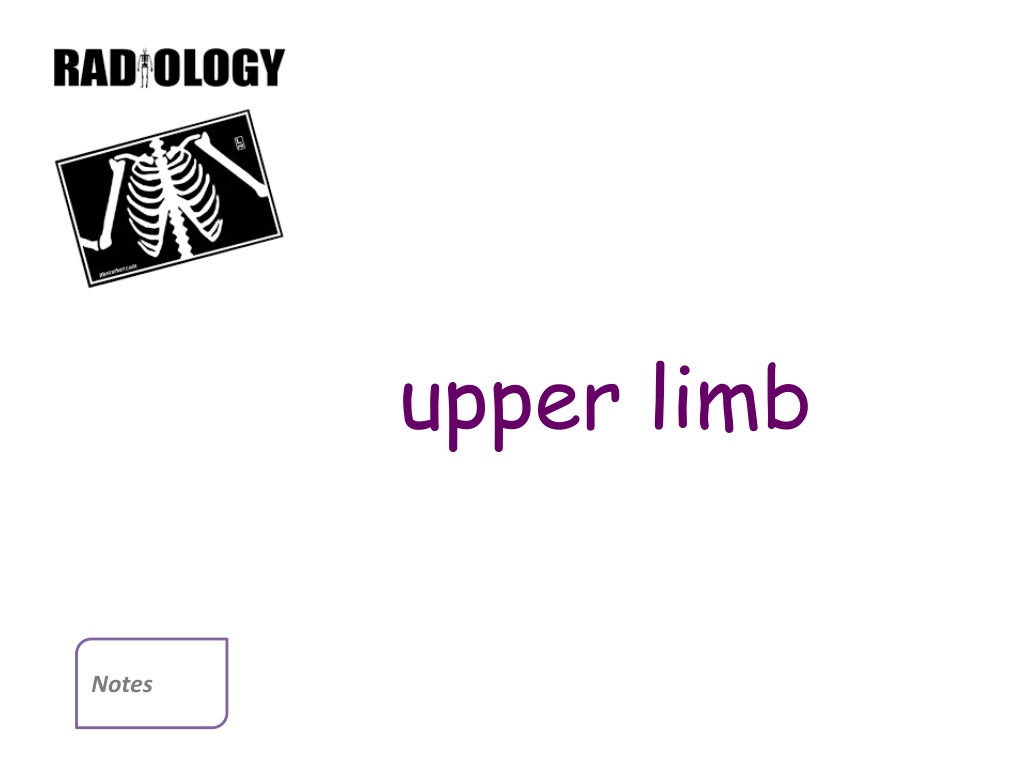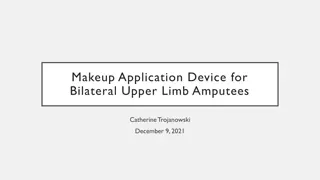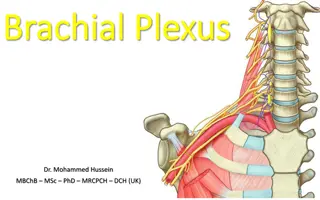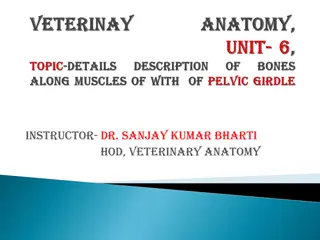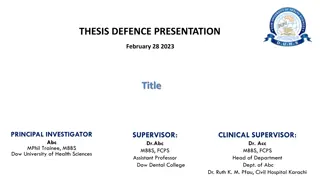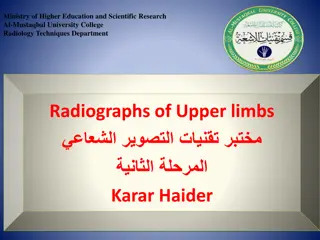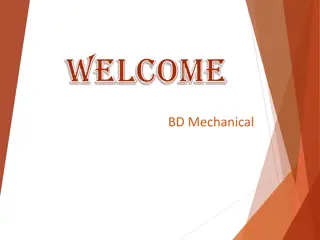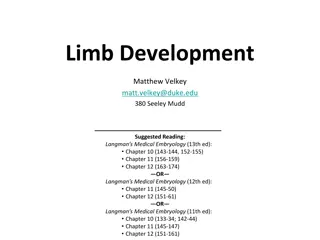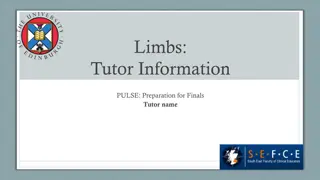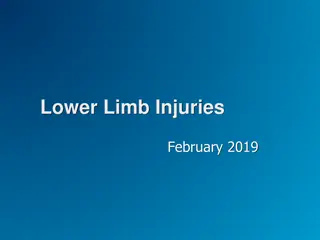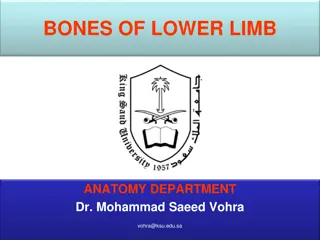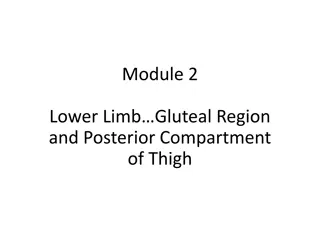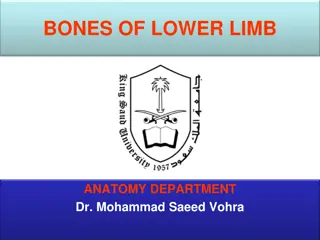upper limb
Delve into the intricate details of the upper limb anatomy, medical imaging modalities like X-Ray, CT scan, and MRI, focusing on bone and soft tissue visualization. Explore shoulder region structures, humerus fractures, MRI views of arm and shoulder, and radiographic imagery of the elbow and hand. Gain knowledge on interpreting X-Ray and MRI scans for diagnosing upper limb injuries and conditions.
Download Presentation

Please find below an Image/Link to download the presentation.
The content on the website is provided AS IS for your information and personal use only. It may not be sold, licensed, or shared on other websites without obtaining consent from the author.If you encounter any issues during the download, it is possible that the publisher has removed the file from their server.
You are allowed to download the files provided on this website for personal or commercial use, subject to the condition that they are used lawfully. All files are the property of their respective owners.
The content on the website is provided AS IS for your information and personal use only. It may not be sold, licensed, or shared on other websites without obtaining consent from the author.
E N D
Presentation Transcript
upper limb Notes
Medical techniques Modality Bone Soft tissue ++++ ___ X-Ray +++++ ++ CT scan ++ +++++ MRI Note that : 1-CT scan results is very rapid to get it,so it useful in accident and other severe damage. 2- X-ray can not used for detecting soft tissue
Shoulder Region 2 1 X-ray 3 1- clavicle 2- acromion 3-Greater tuberosity 4-lesser tuberosity 5-Glenoid cavity 6- coracoid process 7-scapula 6 4 5 7
Y View 1 5 2 4 1-acromion 2-spine 3-scapula 4-coracoid 5-humeral head 6-humerus shaft 3 3 6
shoulder Region MRI
5 6 Note : MRI can display soft tissue while x- ray can t. 1 1-supraspinatus muscle 2- glenoid cavity 3-humeral head 4-deltoid muscle 5-acromion 6-clavicle 7-subscapularis muscle 8-teres minor 3 4 2 7 8
MRI Arm 1- Biceps brachii muscle 2-- Brachialis muscle 3-Brachial artery 4- Humerus 5-Triceps muscle
Elbow X-Ray
8 7 1 2 1- lateral epicondyle 2- capitulum. 3- radial head 4- radial tuberosity 5- ulna 6- trochlea 7- medial epicondyle 8- olecranon fossa 6 3 4 5
Note : Radial will appear bigger than ulna in x-ray 1 2 1- humerus 2- coronoid process ** 3- Radial head 4- Radial tuberosity 5- olecranon 6- olecranon fossa 7- Ulna 3 4 6 7 5
Child Adult (as you can see there is no carpal bones)
Hand X-ray
1- Scaphoid. (navicular) 2- Lunate. 3- Triquetrum. 4- Pisiform. 5- Hamate. 6- Hook of Hamate. 7- Capitate. 8- Trapezoid. 9- Trapezium. 10- Radius. 11- Ulna. 12- Ulnar styloid process. 13- 1st metacarpal. 2nd metacarpal ( and so on from lateral to medial ) 13 6 8 4 3 9 7 5 12 1 2 11 10
TO HELP YOU
1 4 1- Distal phalanx. 2- Middle phalanx. 3- Proximal phalanx. 4- Distal interphalangeal joint. 5. Proximal interphalangeal joint. 6- metacarpophalangeal joint. 2 5 3 6
